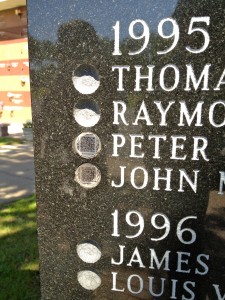To be held at Lancaster House Hotel, Lancaster
Slide Presentations and Video are being added to the Programme page – please check
Our physical and social deaths are becoming increasingly entangled within the webs of our technologically mediated lives. Scholarly thinking about this intersection between contemporary human death, technologies, media, loss and commemoration has been a growing area for interdisciplinary study. Since the seminal and explorative work of Bos (1995) and Sofka (1997), it has attracted interest from researchers in a range of disciplines, including the social sciences, media studies, anthropology, psychology, medicine, as well as computing, design, art and creative practice. There often is deep engagement with individuals and communities, as well as care and service providers. Through this work important insights and innovative responses to the use, design and implementation of technologies and services at the end of human life are emerging.
The Futures of the End of Life Symposium opens up a space to explore changing practices of dying, loss and commemoration. It seeks to formally foster knowledge co-creation and collaborative co-production of socio-technical configurations of old and new technologies, services and practices. We warmly welcome researchers, artists, designers, developers and non-academic stakeholders and invite contributions that explore different understandings of what constitutes research, knowledge, practice and responsible research and innovation. The symposium will foster critically and creatively engaged perspectives which address technologies not as passive tools but as configurations that emerge out of complex, socially situated design, development and appropriation processes.
This critical and creative recognition of emergence and (un)intended ethical, personal and political consequences is particularly important when shaping futures of digital death and mobilities of loss and commemoration in the growing digital economy. Technologies and can be designed, standards, policies and best practice guidelines can be developed in ways which can generate complex, intended and unintended, desirable and undesirable effects, which affect and are experienced differently by different people in different times and contexts, and with unexpected wider societal implications.
We invite contributions that bring analytical, critical, practice-based and creative insights to the use, design and development of technologies entangled at the end of life. Theoretical, empirical, practical and design or art-based research and approaches are welcome. Themes may include:
- The digital economies of death, dying, commemoration and loss
- Dying online or digital mediations of death
- Personalization and hybridization of rituals, digital memorialization, mourning practices
- Digital afterlives, agency and the social presence of the dead
- Digital remains, digital legacy or peri or post mortem data
- The multiple physical, informational, imaginative mobilities of death, loss and memory
- The multiplying temporalities of practices, memories, experiences
- Methodological considerations, e.g. ethics, privacy, value sensitive design
Please submit a 300 word abstract to p.drinkall@lancaster.ac.uk. For artworks or design proposals we also invite examples of practice, images or sketches. Please include full contact information, name, affiliation and email address in the submission. If you have any questions, please contact p.drinkall@lancaster.ac.uk.
Important information
- Submission Deadline: 14th December 2015
- Notification of Acceptance: 21st December 2015
- Registration by 4th January 2016
A registration fee of £70 will be charged to cover conference facility costs for salaried participants.
PhD students – FREE
References
Bos, E., 1995. We Can Make Forgetting Impossible, But Should We?. Interactions, July, pp. 11-14.
Bos, E., 1995. Making the Dead Live On: An Interactive Talking Picture of a Deceased Person. SIGCAS, March, pp 7-9.
Sofka, C. J., 1997. Social support “internetworks,” caskets for sale, and more: thanatology. Death Studies , 21(6).
